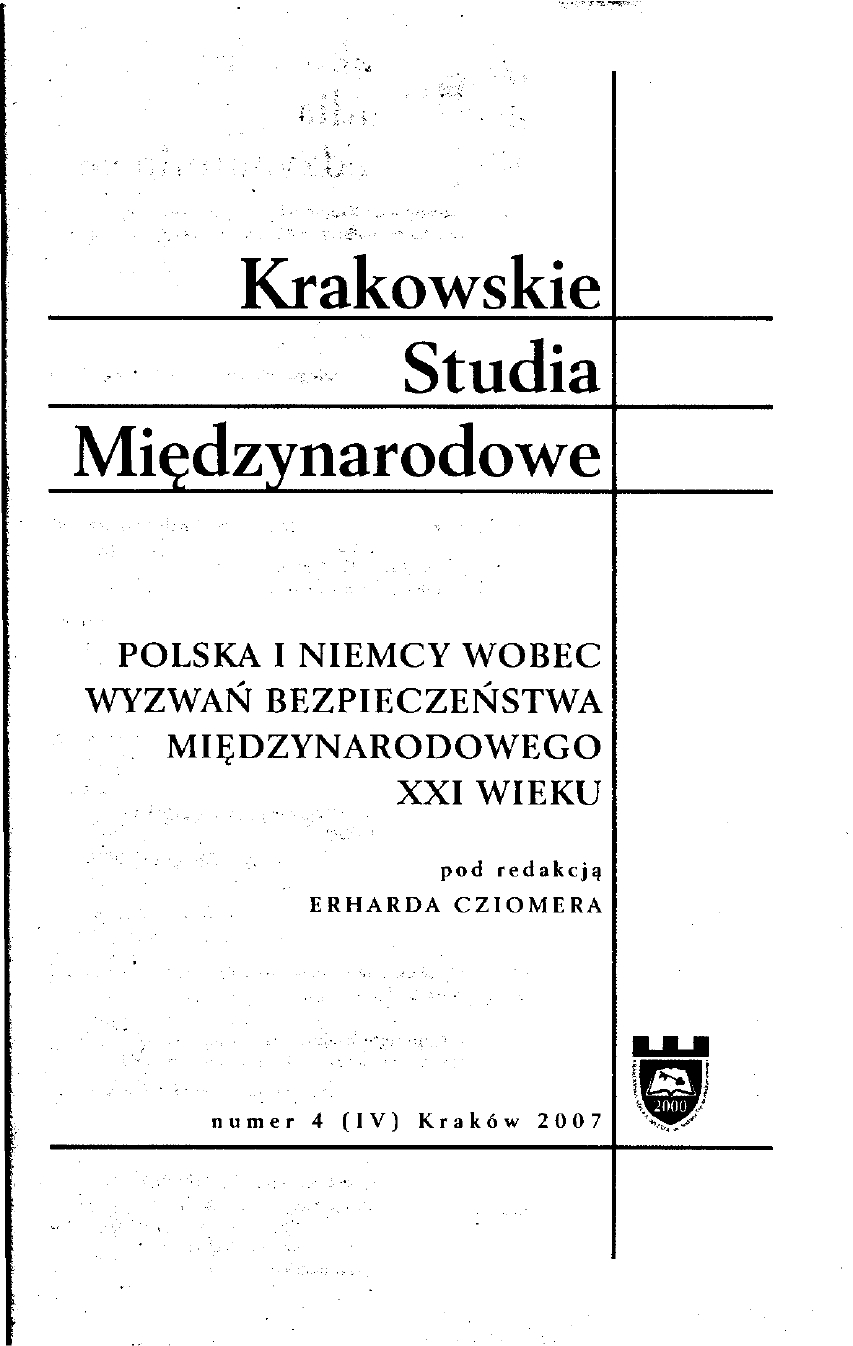Polska i Niemcy wobec problemów międzynarodowego bezpieczeństwa ekologicznego
Poland and Germany in the face of international environmental security problems
Author(s): Beata MoloSubject(s): Energy and Environmental Studies, Environmental and Energy policy, International relations/trade, Security and defense
Published by: Oficyna Wydawnicza AFM Uniwersytetu Andrzeja Frycza Modrzewskiego w Krakowie
Summary/Abstract: The protection of natural environment became an important element of international cooperation between states. Due to the transborder character of many environmental threats, unilateral actions taken by states in this field are not sufficient, and therefore states need to become involved in international projects. The goal of the paper is presentation of Polish and German positions on the problems of International, environmental security. Due to the spatial limitations of the work and complexity of the question, the analysis focused on selected questions. The first part discusses the notion of environmental security as well as phenomena and processes that pose danger to this security. Further, the research focuses on the goals and priorities of environmental policy in Poland and Germany, with special attention paid to climate policy. Both Polish and German environmental policy is based on the principle of sustainable growth. The practical goal of this policy in the field of climate protection is reduction of greenhouse gas emissions. The presentation of the position of Poland and Germany related to the actions aimed at reduction of carbon dioxide emissions to the atmosphere follows. While presiding over the EU, German and became involved in urging high-flying goals in and environmental protection, namely reduction of greenhouse gas emissions and increasing the share of renewable energy in the general energy balance of European Union. Despite the initial negative attitude to these plans, Poland eventually agreed to reduce carbon dioxide emissions by 20% (as compared to 1990) by the year 2020 and to have a share of 20% held by renewable energy sources in the general EU energy balance by the year 2020. Germany tried also to make use of their presidency of the G8 group to rally other states to measures aimed at limiting climatic changes.
Journal: Krakowskie Studia Międzynarodowe
- Issue Year: IV/2007
- Issue No: 4
- Page Range: 279-290
- Page Count: 12
- Language: Polish

